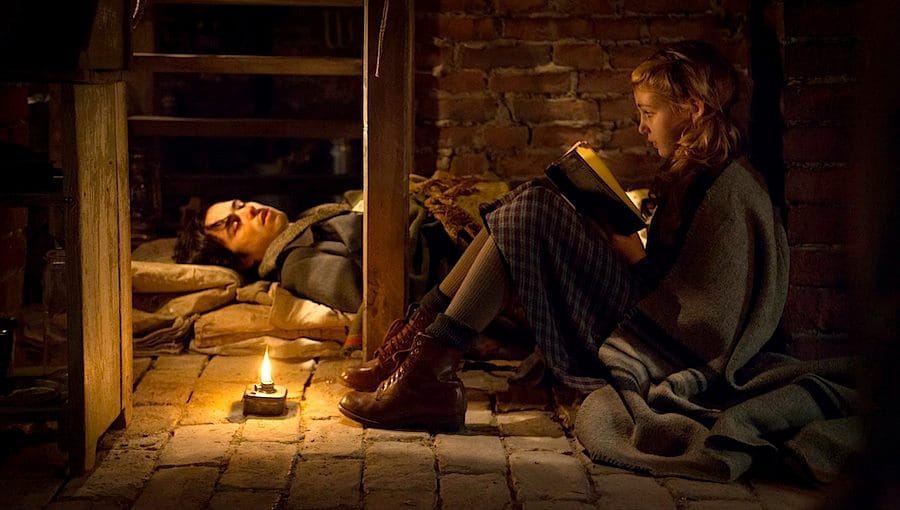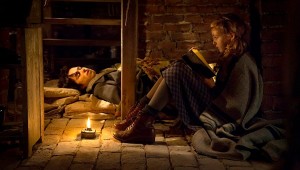The Book Thief

Expectations are high when going in to see a movie based on a well-loved book, so how does ‘The Book Thief’ hold up?
By Dorina Marlen Heller

One thing you probably should not do when one of your favourite books is turned into a movie is go and see it with high expectations. But that is precisely what I did when I went to see “The Book Thief”, which is based on Markus Zusak’s eponymous novel. And I don’t want to turn this into a philosophical discourse about how one should see books and their screen adaptations as separate pieces of work – although one undoubtedly should – , but I think what is most important is the overall feeling that stays with you when walking out of the film. An “I’m-just-coming-from-a-different-wondrous-place-and-I-liked-it-there”- feeling was what I definitely got from watching Brian Percival’s German-American adaptation of Zusaks’s novel.
The story takes you back to Nazi Germany, where a young girl and her little brother, whose parents are persecuted by the regime for being communist, are shipped off to foster parents. On the train journey through icy wintery landscapes her brother dies and the narrator of the story, death itself, becomes fascinated with stubborn, headstrong, brave Liesel Meminger (impressive performance by Sophie Nélisse). There is just something outstanding about this little girl.
Liesel is fascinated by books and soon gets her kind, warm-hearted adoptive father Hans Hubermann (fantastic Geoffrey Rush) to teach her how to read. She gets along with her adoptive mother Rosa (a very authentic Emily Watson) and finds a friend in energetic, fair-haired Rudy (simply heart-breaking Nico Liersch) who soon loves and respects her deeply. So far, so good, but this seemingly idyll is overshadowed by the dawning of World War II, by food-scarcity, bomb-raids and the ever-present anti-Semitism. One night Max Vanderburg (played by a convincing Ben Schnetzer) knocks on the door of their humble house. Max is a Jew who is running for his life. His father gave his life to save Hans’ in the First World War and now his son is asking the Hubermanns to return the favour. They hide him in their cellar, and a dangerous, high-risk game begins.
It’s a powerful, moving story being told here, and the actors seem to be very much aware of their place in it and their responsibility. The film brings out aspects which the book treats as secondary plots, an interesting facet. The oppressive, manipulative methods of a regime that brain-washed millions of people are brought out well and while the use of the German accent and certain German words or songs might seem slightly irritating at first, they also help in establishing the story’s essential historical and geographical background.
Overall this is a beautifully-told tale of courage, bravery and the power of literature and language, which, as any other film, has its ups and downs. Sometimes crucial details are sacrificed for the sake of simplifying the story and sometimes Hollywood’s marks are too obvious between swastika-flags and burnt books, but the actors’ commitment to the story is perceptible. That leaves you with a gratitude for life, its beauty and hardships, as well as with a feeling of empathy for death, who, in his own words, is “haunted by people”. And that is a lot to take out from a movie.
The Book Thief plays at the Ritzy Picturehouse until the 16th of March.




